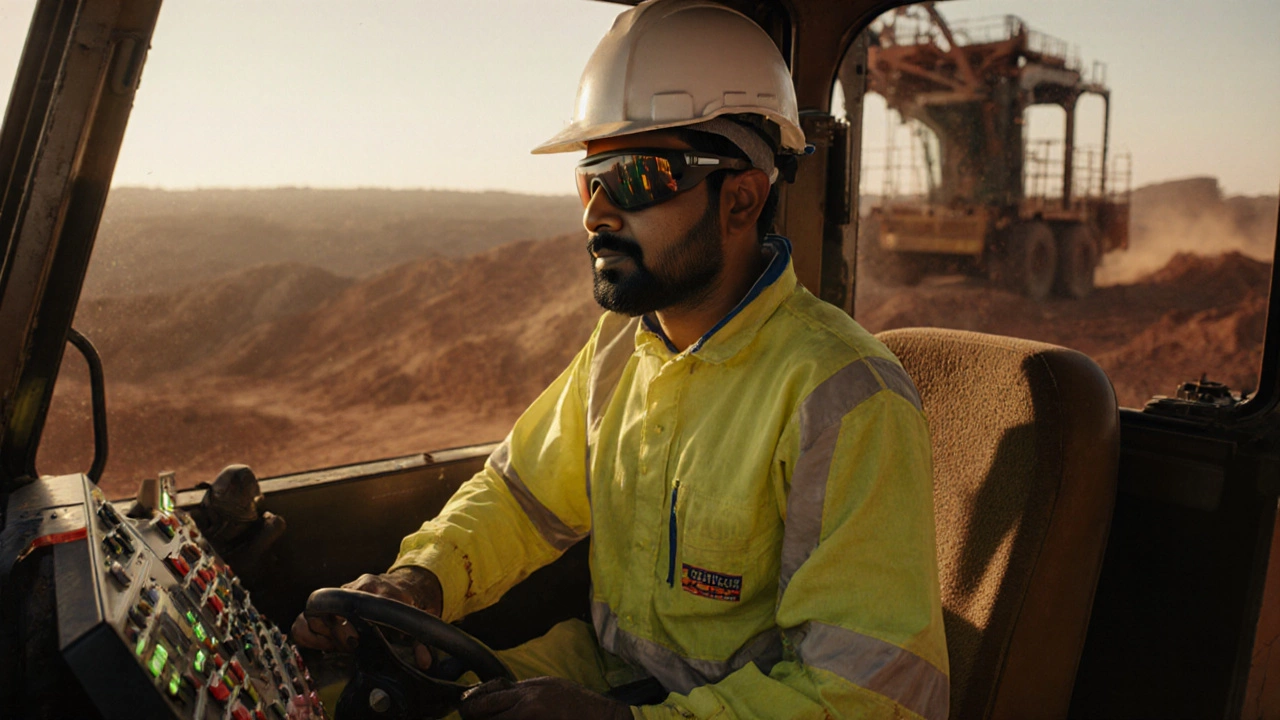Top Paying Vocational Courses in Australia 2025 - Which Pays the Most?

Vocational Salary Estimator
Estimate your potential annual salary based on your chosen vocational course and years of experience.
TL;DR
- The highest paying vocational course in Australia right now is Aircraft Maintenance Engineering (median AUD$92,000).
- Mining Engineering, Electrical Engineering (CertificateIV) and Construction Management (Diploma) also break the AUD$80k threshold.
- Salary depends on industry demand, location, and years of experience, not just the qualification.
- Most top‑earning courses take 2-3years full‑time at a TAFE or approved private provider.
- Future‑proof trades like Data Analytics (CertificateIV) and Cyber‑Security (Diploma) are closing the gap fast.
How Australian Vocational Salaries Are Measured
Australian salary data comes from the Job Outlook survey and the Australian Bureau of Statistics (ABS) Wage Price Index. Both sources report median annual earnings, which strips out outliers and gives a realistic picture of what a graduate can expect after the first 2‑3years of work. The figures below are adjusted to 2025 dollars and reflect full‑time positions.
Top Paying Vocational Courses in 2025
Below are the six qualifications that consistently rank at the top of the earnings chart. Each entry includes a brief definition, typical qualification level, and the median salary you can expect.
Aircraft Maintenance Engineering is a vocational qualification that trains students to inspect, repair and certify aircraft structures, engines and avionics. Graduates usually earn a median salary of AUD$92,000 and can work for airlines, maintenance‑repair‑overhaul (MRO) firms, or the Australian Defence Force.
Mining Engineering (Diploma) is a practical programme focused on underground and open‑pit mining operations, safety, and equipment maintenance. Median earnings sit around AUD$88,000, especially in Western Australia’s resource belt.
Electrical Engineering (CertificateIV) is a trade‑level course covering high‑voltage systems, automation and renewable energy installations. Graduates typically pull in AUD$84,000 across construction, mining and utilities.
Construction Management (Diploma) is a qualification that blends site supervision, cost estimating and project scheduling. Median salary is about AUD$81,000, with senior site managers exceeding AUD$100k.
Heavy Vehicle Technician (CertificateIII) is a hands‑on program teaching maintenance of trucks, buses and off‑road machinery. The median wage sits at AUD$78,000, driven by demand in logistics and mining fleets.
Data Analytics (CertificateIV) is a technical course covering SQL, Python and business intelligence tools for data‑driven decision making. Although newer, its median salary of AUD$76,000 is rapidly climbing as businesses digitise.
Side‑by‑Side Comparison
| Course | Qualification Level | Median Annual Salary (AUD) | Typical Industry | Typical Duration |
|---|---|---|---|---|
| Aircraft Maintenance Engineering | Advanced Diploma | 92,000 | Aviation, Defence | 3years |
| Mining Engineering | Diploma | 88,000 | Resources, Energy | 2years |
| Electrical Engineering (CertIV) | CertificateIV | 84,000 | Construction, Utilities | 2years |
| Construction Management | Diploma | 81,000 | Infrastructure, Real Estate | 2years |
| Heavy Vehicle Technician | CertificateIII | 78,000 | Logistics, Mining | 1.5years |
| Data Analytics (CertIV) | CertificateIV | 76,000 | IT, Finance | 2years |

Why These Courses Earn More
Three main forces push salaries up:
- Industry demand. Aviation, mining and energy are capital‑intensive sectors that can’t afford skill shortages, so they pay a premium.
- Regulatory requirements. Many of these roles require licensed certification (e.g., CASA for aircraft, or a White Card for construction), limiting the talent pool.
- Geographic concentration. Jobs in Western Australia, the Northern Territory and major hubs like Sydney and Melbourne carry location allowances that boost the base figure.
Entry Requirements and Pathways
Most high‑paying vocational courses require a Year12 certificate or equivalent. However, there are alternative pathways:
- Apprenticeships that combine on‑the‑job training with part‑time study (common for Heavy Vehicle Technician and Electrical trades).
- Recognition of Prior Learning (RPL) for those who have worked in related fields (e.g., mechanics moving into aircraft maintenance).
- Bridging courses for migrants or mature students, often funded by state skill‑match programs.
Future‑Proof Trades to Watch
While the six courses above dominate 2025, the next wave of high‑earning qualifications is emerging:
Cyber‑Security (Diploma) is a trade‑level programme teaching threat analysis, incident response and network hardening. Early data shows graduates pulling between AUD$80,000‑$95,000, especially with government contracts.
Renewable Energy Technician (CertificateIV) focuses on solar PV installation, battery storage and wind turbine maintenance. Median earnings are climbing toward AUD$75,000 as Australia’s clean‑energy targets ramp up.
Both fields are projected to grow at double‑digit rates over the next five years, meaning they could rival traditional high‑pay trades soon.
Related Concepts and Next Steps
If you’re exploring vocational education, you’ll also want to understand:
- TAFE institutions. Public colleges that deliver most of the courses listed.
- Apprenticeship levy. A funding mechanism that can reduce tuition costs for eligible employers.
- Skill‑match programs. Government initiatives that align training with regional labor shortages.
After reading this guide, you might dive deeper into any of these topics, compare individual providers, or calculate your return on investment using the salary data above.

Frequently Asked Questions
Which vocational course currently offers the highest median salary in Australia?
Aircraft Maintenance Engineering tops the list, with a median annual salary of around AUD$92,000 for full‑time graduates.
Do I need a university degree to earn these salaries?
No. All the courses listed are vocational qualifications - diplomas, certificates or advanced diplomas - delivered through TAFE or approved private providers.
How long does it take to complete the highest‑paying courses?
Most take between 2 and 3years full‑time. Apprenticeship routes can spread the training over 3‑4years while you earn a wage.
Are these salaries the same across all Australian states?
Salaries vary by region. Western Australia and the Northern Territory tend to pay higher wages for mining and heavy‑vehicle roles, while Sydney and Melbourne offer premiums for aviation and construction.
What are the main factors that could increase my earnings after graduation?
Gaining additional certifications (e.g., CASA licence for aircraft, or a White Card for construction), moving to high‑demand locations, and accumulating 2‑3years of on‑the‑job experience are the biggest salary boosters.